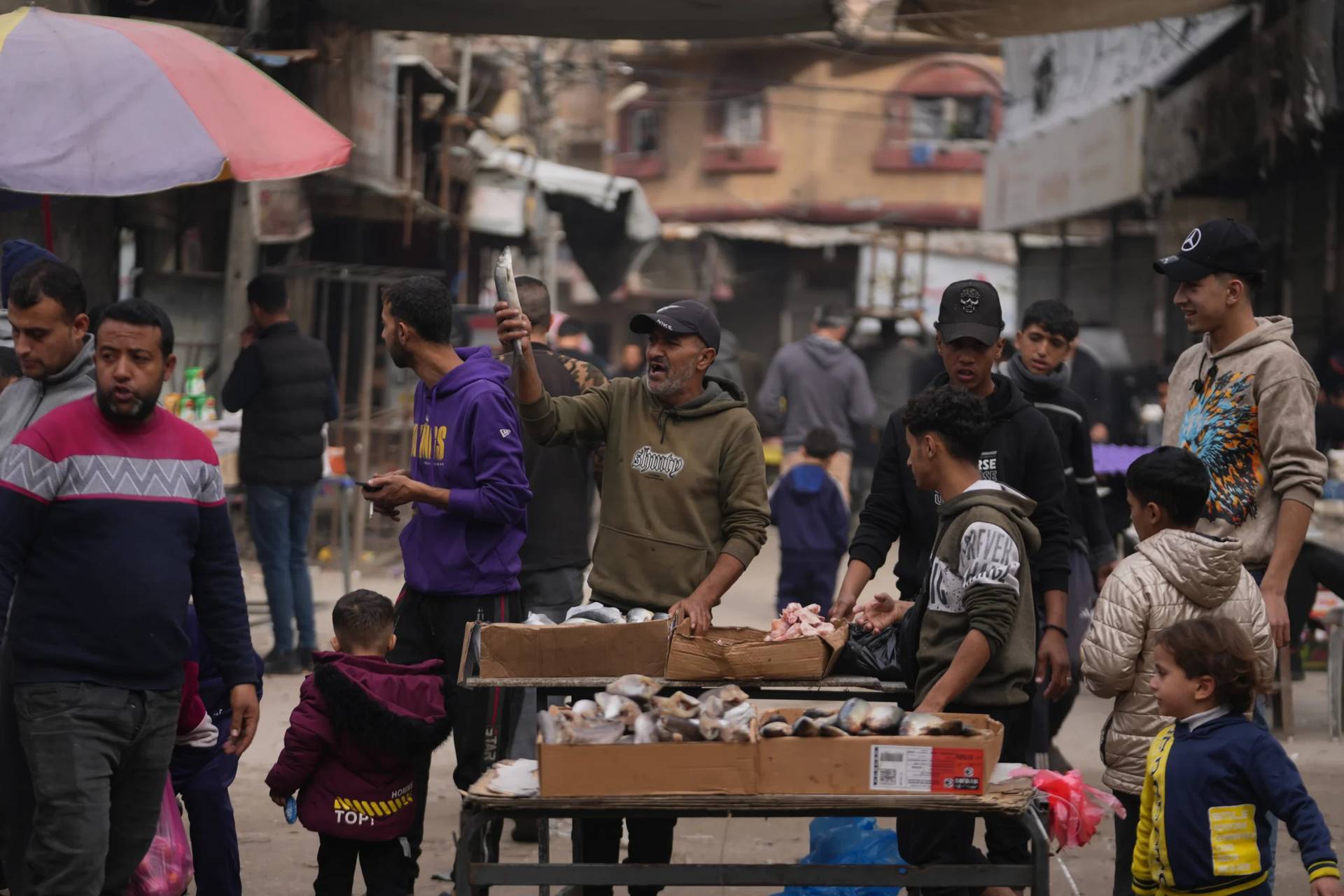ROME — Ten years ago, a group of Islamist militants in Mosul stopped the car of a Catholic priest and three sub-deacons after they had celebrated Mass for the Holy Trinity Sunday.
“We told you to close the church. Why didn’t you?”
Father Ragheed Ganni’s simply said, “we cannot close the house of God.”
Those were his last words.
The 35-year-old Iraqi priest, belonging to the eastern Chaldean rite, was shot to death with the three subdeacons: Basman Daoud, Ghasan Bidawid and Waheed Isho’a.
The wife of one of Ganni’s friends managed to escape, and became the only witness to the tragedy. She later said the priest motioned with his head for her to run away after he was pushed to the ground by his attackers.
On this past Sunday, Rome’s Pontifical Irish College celebrated Holy Trinity Mass in the memory of the slain clergymen.
The college has a personal connection to the event: Starting in 1996, Ganni lived there for seven years, while studying at the Pontifical University of St. Thomas – known as the Angelicum (the chapel of the Irish College in Rome now has a mosaic of Ganni by Father Ivan Rupnik, SJ, which was installed in 2010).
In 2004, he decided to return to his country to help it and its Christian population rebuild. Because of his connections in Rome, he was often the priest journalists and humanitarians spoke to when trying to find out what was happening in Iraq, and his death hit the international Catholic community in the city hard, including the Irish College.
The homilist at the Mass was Father Rebwar Audish Basa, a friend of Ganni, who is also from Iraq. Basa recently released a book on the life of his friend, A Catholic Priest in the Islamic State. The Story of Father Ragheed Ganni.
The book was published by Aid to the Church in Need, which funded Ganni’s studies in Rome.
“Closing that house of God would mean denying Jesus Christ and saying to believers not to practice their faith. That was unimaginable for Father Ragheed,” Basa said in his homily.
Basa later told Crux the Church in Mosul expects the martyrdom of Ganni and his companions to be officially recognized by the Vatican.
During the Chaldean Synod of September 2016, Iraqi bishops expressed their desire to recognize the martyrs killed in the country since 2003, when the country descended into chaos after the U.S. invasion to topple Saddam Hussein.
Included among these is also Bishop Paulos Faraj Rahho of Mosul, who was kidnapped and murdered in 2008. Rahho is the one who had the words from the Gospel of Luke – “Father, not My will but Yours be done” – inscribed on Ganni’s tomb.
Now, the churches of Mosul have been desecrated and destroyed, as detailed in Basa’s book.
“The beautiful parish of the young martyr priest is now completely desecrated, looted. It is no exception, because all churches, monasteries, houses, property, and even tombs of Christians are in these dramatic conditions,” he writes.
This includes Ganni’s tomb.
“The intention of the jihadists was to clear every trace of the life and martyrdom of this young heroic priest,” Basa said in the book.
But the efforts of the Islamist extremists look to be futile. The story of the martyr-priest is well-known among Iraqi Christians and the church throughout the world.
In 2008, Pope Benedict XVI received his relics, together with Rahho’s, and said “their sacrifice is a sign of their love for the Church and for their own country.”
More recently, in a prayer service for the martyrs of our times on April 22, 2017, Pope Francis wore Ganni’s stole. It is kept now in the Basilica of Saint Bartholomew on Rome’s Tiber Island, along with relics of other modern martyrs.
Cardinal Fernando Filoni, Prefect of the Congregation for the Evangelization of Peoples, wrote “the splendid testimony of faith of Father Ragheed must remain present in the memory of the Church” in the introduction to Basa’s book.
“I met Ragheed in Baghdad and in Mosul when I was an apostolic nuncio in Iraq. I was impressed by his vivacity and his priestly enthusiasm, despite the difficulties of those times,” – Filoni continues – “every young man who is attracted to priesthood, every young priest who begins his pastoral ministry should know the brief story of Father Ragheed Aziz Ganni.”
In 2016, Iraqi forces began pushing the Islamic State group out of the area surrounding Mosul, called the Nineveh plains.
Most of the region’s Christians are still in Irbil, the capital of Iraq’s Kurdish region, where they fled after being driven out by the Islamic State.
Aid to the Church in Need is working with the local Church to draw up a plan to rebuild some of the towns and villages that were destroyed.
A delegation from the group visited the newly liberated villages, which is when they found Ganni’s tombstone smashed to pieces in his home village of Karamles.
Slowly, Christians are returning to the area, but Aid to the Church in Need said a large scale return won’t be possible for two or three years.

















